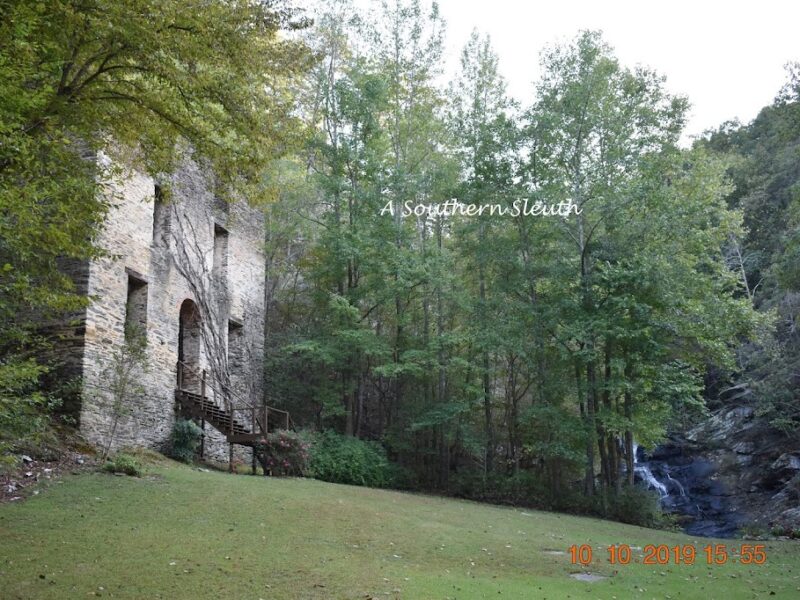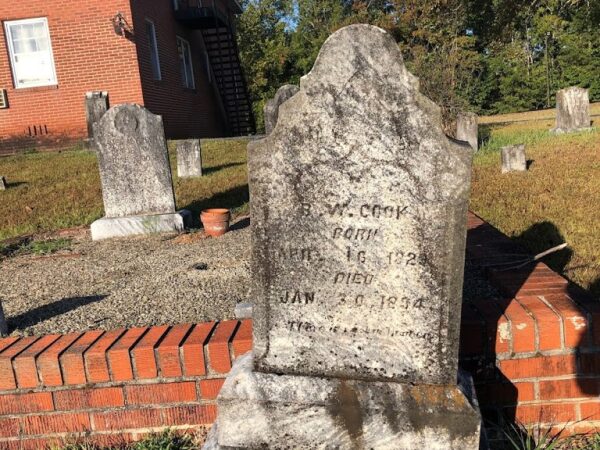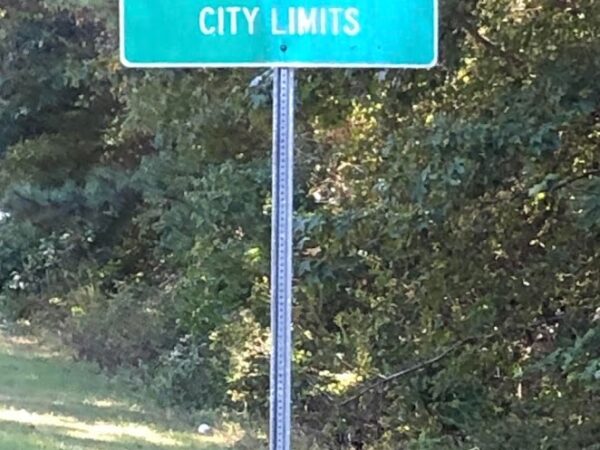As we walked the “Sunken Road” beside the stone wall at Fredericksburg, I surveyed the field below. I could envision in my mind’s eye the brutal battle scene often portrayed in Civil War documentaries and movies. But the field, once war torn, showed few scars and instead stood peaceful and serene. It felt surreal to actually be there and to stand on the very site where so many men had lost their lives.
 |
| Present day “sunken road” and the rock wall |
My husband and I had traveled to Richmond, Virginia to attend the National Genealogy Society’s 2014 Conference. Afterwards, we visited a few of the many historical sites in the area, including the battlefield at Fredericksburg, Virginia. While I loved knowing that at one time, my ancestors had been there, I hated knowing why.
Our visit was in May and as is typical for the season, the air was warm and humid. A few songbirds sang in the trees surrounding the fields, but otherwise the air was still and quiet, a sharp contrast to December of 1862. That December, as troops converged on the battlefield, the bitter cold, snow and mud added to the misery of the war. While cannon balls took out lines of men, bullets riddled the smoke filled air, killing many who courageously fought, and yet they were not the only enemy. Lack of good food, few tents and a shortage of blankets, along with rampant disease and inadequate medical care,
took the lives of many.
 |
| Gallant Charge of Humphrey’s Division at the Battle of Fredericksburg Library of Congress |
David Ganus, Burton Cook and James Blackmon were all at Fredericksburg. David Ganus was born in 1836 in Fayette County, Georgia to James (Gur)Ganus and Elizabeth McCluskey. David was a younger brother to my 3rd great grandfather, John Monroe Ganus. Burton Cook was married to David and John’s oldest sister, Mary, and James Blackmon was married to their sister, Margaret. David, Burton and James were among the thousands of Confederate soldiers present for the historic battle at Fredericksburg.
 |
| Cobb’s and Kershaw’s Troops behind the stone wall Library of Congress |
As I paused to read the historical markers, I felt a flood of emotion as I imagined David, Burton and James, standing shoulder to shoulder with each other, their neighbors and friends. Given the number of soldiers there, it is doubtful that David was even aware of the presence of other more distant relatives, such as Florida cousins, Willis and Moses Gurganus. As regiments from multiple counties and states joined together at the various battles, brothers, uncles, cousins, sons and fathers all fought, sometimes side by side and sometimes on opposing sides
 |
| Part of the original rock wall today, built by Confederate Soldiers |
I was grateful that we practically had the park to ourselves that day because I wanted to feel and to think, without the distractions of a noisy crowd. I wanted to reflect on what I knew about the men that I have researched and grown to love and to pay honor to them as I walked along the road where they had once been. As we walked along the Sunken Road behind the rock wall and at the base of Marye’s Heights, I felt a solemn reverence for the significance of that site, as it had offered significant protection from the oncoming Union troops. According to “The Dorman-Marshbourne Letters” by John W. Lynch, the Georgia 53rd was posted on the road below Marye’s Heights on December 14th and 15th of 1862.
Luckily David, Burton and James all survived the battle at Fredericksburg, but David developed pneumonia and a few weeks later he was sent to Winder Hospital in Richmond. With that, I knew where our next stop would be.
Copyright © Michelle G. Taggart 2014




Comparing the two pictures of the same scene, the "then and now" of the rock wall at the sunken road with the same building with the a lone window at the top…. I am simply amazed. Also, the piece was very well written, and you pull your readers right into the stories. I just love everything you write! I really think you should consider writing a book.
Michelle,
You really are an amazing writer! And what a special experience this visit must have been for you. Thank you for sharing.
Thank you so much Karen for your comments. It was fortunate to have taken the picture and then find the same angle portrayed in the sketch.
Thank you so much Jana! It was an amazing week. Our kids asked if I spent the week in tears and the answer was yes. It was a really wonderful opportunity.
We were able to visit Fredericksburg about 15 years ago, long before I knew that my second great grandfather, William J. Brooks, was killed in battle on December 13, 1862. Maybe he served with your ancestors? I hope that one day we'll be able to get back there – this time I'll pay way more attention than I did then.
Well put, Michelle: "While I loved knowing that at one time, my ancestors had been there, I hated knowing why."
Exactly.
I have had the same experiences with other locations I have visited. It's frustrating to learn after the fact! I hope you get to return and I would like to think just maybe our ancestors did know each other.
Hi Jacqi! Thanks for stopping by and for your comment. War brings about so many conflicted emotions anyway. They certainly provide some of the best records we have about our ancestors, but what a price was paid !
This was such a tender-hearted post, Michelle, and so well-written. I think standing in the place where an ancestor stood is always very touching but standing where ancestors fought battles for what they believed is another thing altogether. Thanks for sharing your experience with us.
Thank you Nancy. My emotions were very near the surface that entire week and I loved every minute of it.